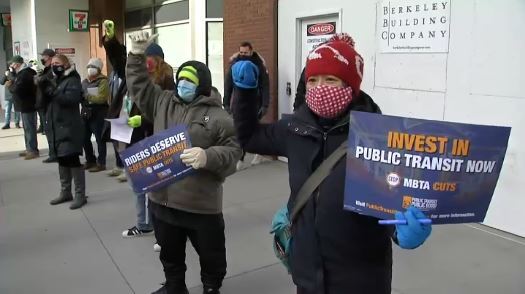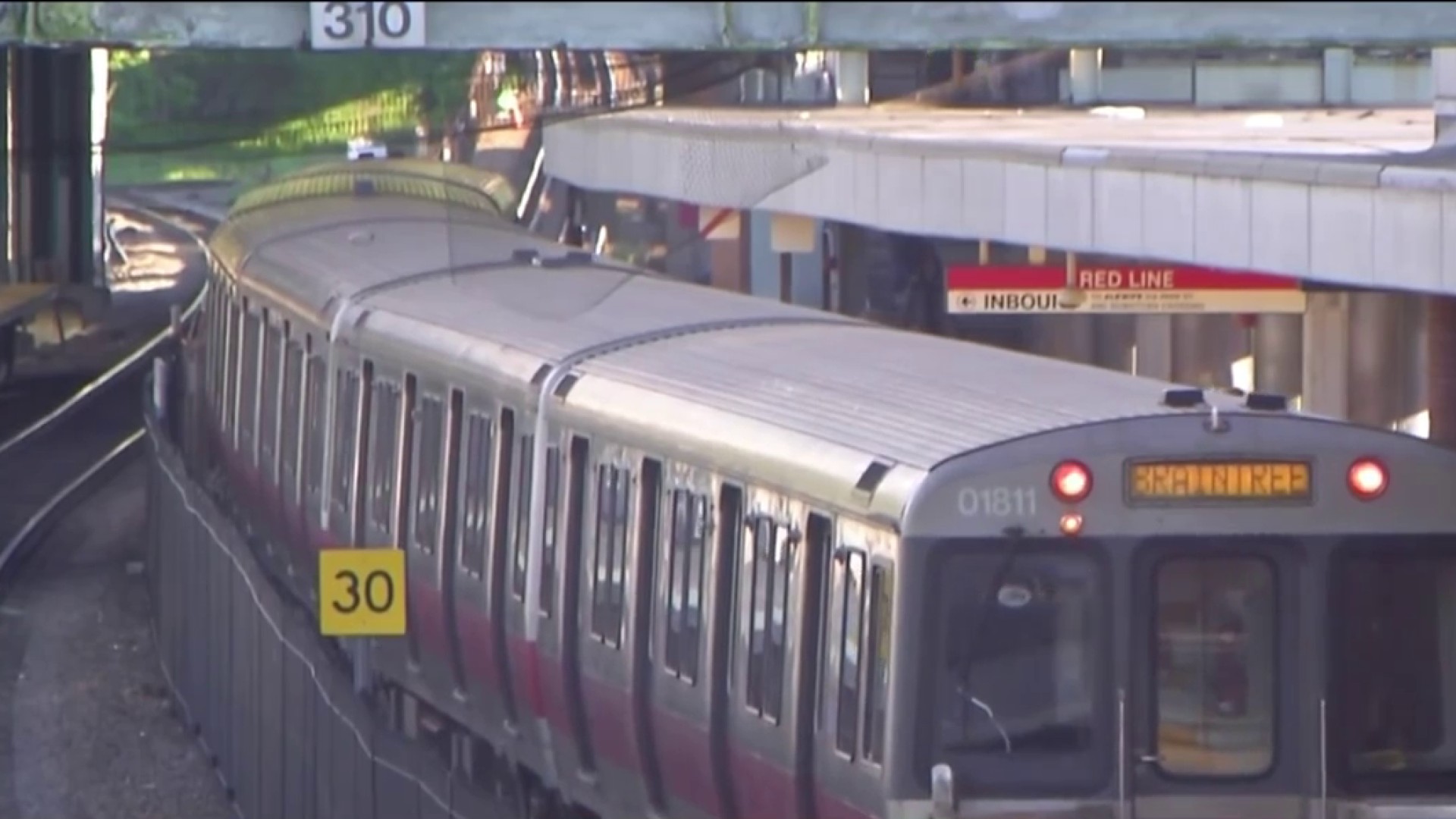Significant MBTA service cuts will hit early next year after the agency's oversight board voted 3-2 in favor of the amended plan Monday afternoon, capping off months of planning and public outcry.
The Fiscal and Management Control Board approved virtually all of the changes that T staff proposed, making only a handful of tweaks aimed at keeping some commuter rail service after 9 p.m. possible, setting a target date for determining if the agency needs to increase service, and ensuring that fare hikes will not factor into upcoming T budget deliberations.
The final plan will suspend 20 bus routes, eliminate weekend commuter rail service on seven out of 12 lines, and reduce subway, bus and ferry frequency.
Although the proposal still called for cutting some routes entirely, it had been scaled back from an earlier version in several areas to recommend reducing service rather than outright eliminating it, based on months of public opposition and feedback.
The plan trims frequency on the Blue Line -- which has seen relatively high ridership during the pandemic -- by a maximum of only 5 percent compared to 20 percent cuts on the Red, Orange and Green Lines.
Weekend service will remain available, albeit reduced from pre-pandemic levels, on the Worcester, Providence, Newburyport/Rockport, Middleboro and Fairmount Lines. Those five routes represent about two-thirds of COVID-era weekend ridership on the commuter rail, officials said.
Maria Pires, a medical assistant at Massachusetts General Hospital, rides the train to and from Middleboro every day.
"It is very important for me because I commute," she said. "This is how I get to the city."
Pires says the fact that her line was saved is big news for when she picks up an extra weekend shift.
FMCB members Joseph Aiello, Monica Tibbits-Nutt and Brian Lang voted in favor of the plan, while members Chrystal Kornegay and Tim Sullivan voted in opposition.
Kornegay and Sullivan voted against a Lang amendment requiring the FMCB and its successor board to avoid increasing fares on buses and subways before both ridership and service hours return to fall 2019 levels.
All five board members were appointed by Gov. Charlie Baker, whose administration oversees the MBTA.
The changes aim to trim spending in fiscal year 2021 while the agency decides how to address a fiscal 2022 budget deficit inflicted by the pandemic's impact on ridership.
The long-term outlook remains unclear, and officials plan to discuss in February and March whether to keep cuts in place, expand them or reverse them in the next fiscal year.
The changes would roll into effect in January and in March in an attempt to take advantage of significantly lower ridership in this stage of the public health crisis -- when the T is, on average, transporting less than a third of pre-pandemic riders -- to save money as the agency stares down a massive budget deficit inflicted by shrinking fare revenues.
The cuts are still on the table despite strong pushback from an array of interests, including members of Congress, and updated tax collection projections that point to a sizeable windfall for the transit agency.
MBTA General Manager Steve Poftak said the "bifurcated" decision-making will allow officials to get a better sense of ridership trends, the COVID vaccination timeline, changes in commuting behaviors and possible federal aid, all of which impact the T's financial outlook.
"I don't know that they're going to resolve themselves definitively, but we will have a lot more information in February and March than we do right now," Poftak told reporters during a briefing ahead of the FMCB's meeting.
Layoffs are still on the table, but Poftak did not offer any specific estimates on workforce impacts, saying officials are in "productive discussions" with labor leaders.
The vote came amid increasing calls for the MBTA to refrain from service cuts.
U.S. Reps. Ayanna Pressley and Stephen Lynch, together with an aide from U.S. Sen. Ed Markey's office, said during a press conference outside the MBTA's headquarters that Democrats in Washington remain hopeful that they will succeed in getting another COVID relief package passed soon that would include significant money for transit agencies.
The House has approved three different relief bills in the wake of the CARES Act that would provide additional funding to public transit, but they have "stalled" amid Republican opposition, Pressley said.
"In this moment, we have got to push the Senate to act and to finally fund the HEROES Act, which included more than $15 billion in federal funding to public transit agencies to prevent cuts like this," she said.
At the moment, MBTA officials are not sure how much money the agency will save under the updated plan. Officials said they would develop a new estimate based on the final version.
Poftak clarified during the briefing, though, that he expects the spending reduction to be less than the original plan proposed in November, which would have carried a net savings -- once accounting for the decline in ridership caused by less service -- of up to $95 million.
Like transit agencies around the country, the MBTA faces a major shortfall because fare revenue has evaporated during the pandemic. Previous estimates forecast a deficit of more than $580 million in fiscal year 2022.
Service cuts are just one component of a larger plan to grapple with that shortfall, alongside reallocating federal funding and trimming capital spending.
During Monday's briefing, Transportation Secretary Stephanie Pollack said the MBTA now expects a boost of $52 million in fiscal 2021 based on an improved sales tax outlook compared to earlier projections.
She contrasted the approach at the T -- whose latest plan would retain 85 to 90 percent of pre-COVID service hours for buses, 75 to 80 percent for subways and 70 percent for commuter rail -- with other American transit agencies.
"I do not see what the T is proposing as anywhere close to a doomsday scenario," Pollack said. "This is a service adjustment, which is providing more than adequate service for the number of riders we have and expect to have for the remainder of the current fiscal year."



